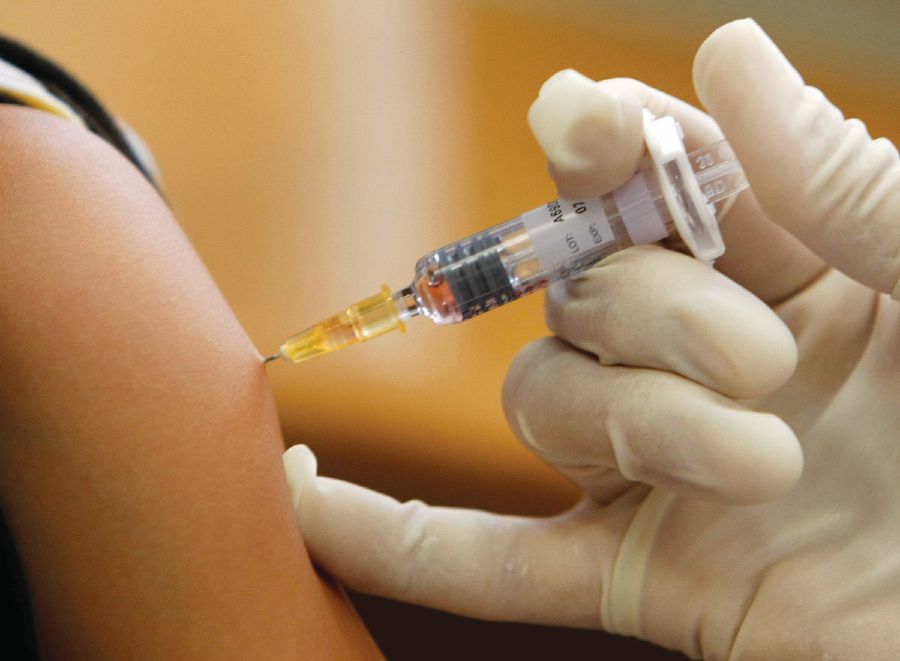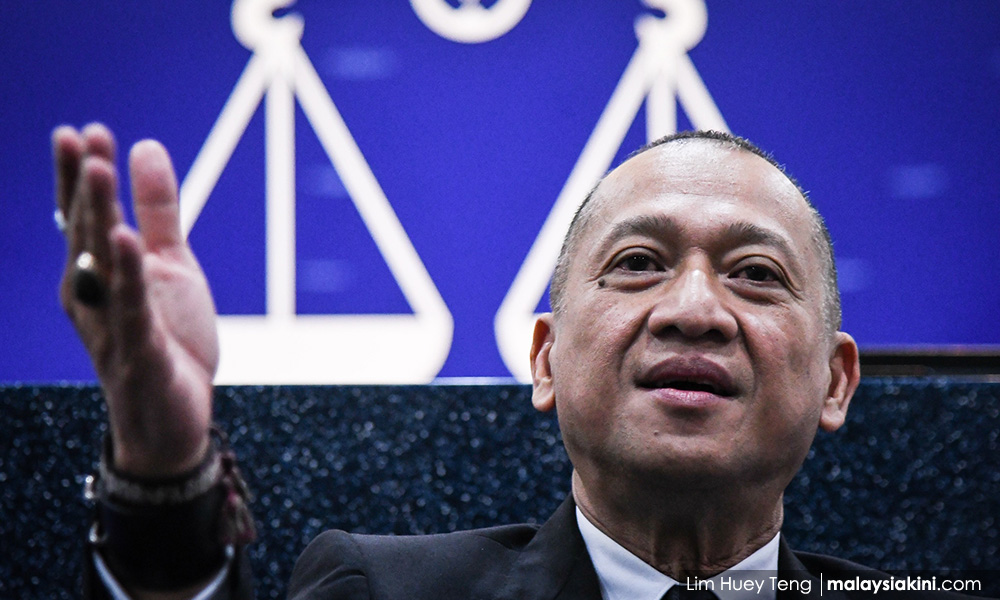
Published by New Straits Times, New Straits Times (Print), Malaysiakini, Malay Mail & The Malaysian Insight, image from New Straits Times.
On February 21st, 2019, we were all appalled and saddened by the passing of a two-year old boy in Johor Bahru. The child was believed to have not been vaccinated since birth and passed away due to severe diphtheria with multiorgan failure.
Following the case, another five children in Johor Bahru were identified with diphtheria, with one of them being the sister of the boy. All the victims were under the age of four and had contact with the two-year old boy. Such a tragedy could’ve been prevented if the parents had an ounce of conscience to go and vaccinate the child.
The increasing trend of anti-vaccination movements in Malaysia bodes ill for the future our children. If nothing is done, we could be looking at a nation ravaged by measles, chickenpox, rubella, meningitis, hepatitis and more.
Deputy Women, Family and Community Development Minister Hannah Yeoh recently commentedthat although it is the parent’s prerogative to vaccinate their children, do not wait until death comes knocking at your door to start acting swiftly.
Why vaccinate?
On a day-to-day basis, we are all prone to attacks from viruses, bacterias and parasites. Our incredible and severely complex body can fend off these assaults thanks to our immune system. However, we aren’t born with this level of protection, it has to be developed.
Our immunity is divided into two categories: innate and acquired. Innate immunity is what you are born with. This includes your skin, mucous membranes and natural killer. Think of it as your first line of defence and general antivirus system.
Acquired immunity on the other hand develops throughout your lifetime. It is adaptive and reacts to foreign substances that cannot be eliminated by innate immunity. It employs specific targeting and permanently remembers how to effectively destroy or eliminate invading pathogens. This helps in thwarting them in the future.
Antibodies play a huge role in eliminating these pathogens. They can either be developed in reaction to a threat or a substance, or received from an external source. Naturally, these antibodies can be developed by the immune system in response to a threat, or received from your mother through breastfeeding for example.
These antibodies can also be artificially developed in response to vaccination, and can also be introduced into the body using medicines. Obviously, our immune systems differ from one person to another. Some might have weaker immunity compared to others. That is why vaccination helps in keeping not only an individual, but everyone else around that individual healthy. This is called herd immunity.
Absurd excuses
The rise of anti-vaxxers is not a case isolated only to Malaysia. It is a pandemic that is currently plaguing nations across the globe. Recently, an unvaccinated French boy reintroduced measles into Costa Rica which had been measles-free since 2014.
In Madagascar, a staggering 926 people have died from measles — a disease that is entirely preventable via vaccination. The measles outbreak in Madagascar began in October 2018, and the shocking number of cases has risen to 68,912.
To try and understand the perspective of people throughout the world who are opposed to vaccination, I went through several reasons they’ve given to not vaccinate, as presented in several papers.
In the United States, there are concerns of vaccines causing autism. This originated from a paper published by Andrew Wakefield in 1998, linking MMR vaccines to autism. Wakefield was then found guilty of falsifying facts and cherry picking data to suit his study. But the damage was already done. Ever since then, scientists and organisations across the world spent a great deal of time and money refuting the study results.
In Malaysia, a widespread concern involves the halal status of the vaccines. More than half of the cases where parents rejected vaccination in Malaysia between 2013 and 2016 came from the states of Kelantan, Terengganu, Kedah, and Pahang.
Some Malaysians believe that vaccines are contaminated with pig DNA making it haram for consumption. According to the Muzakarah of the National Council of Fatwa Committee, vaccination is permissible. Recently, the Minister of Religious Affairs Malaysia, Datuk Seri Mujahid Yusof, also stated that all vaccines produced in Malaysia are halal and are medically approved.
The next step
At this point, the scientific credibility of vaccines shouldn’t be a matter of debate. When the lives of thousands, even millions are at stake, proper science cannot be ignored. The Ministry of Health should be commended for taking this matter seriously and proposing to make immunisation vaccination mandatory.
I say we take the high road and take away the parent’s prerogative, contrary to Hannah Yeoh’s statement. Making it compulsory instead would save so many children from their parent’s imprudent decisions — decisions that endanger not only their own children, but the children of others as well.
Although details of implementation are still in talks, it also wouldn’t be a bad idea to follow the footsteps of Australia. The “No Jab, No Pay“ policy by the Australian government stripped away welfare payments for parents who object to vaccination. Australia also banned unvaccinated and undervaccinated children from schools and childcare centres during disease outbreaks.
Malaysia should also adopt more rigorous spreading of correct information regarding immunisation, and perhaps the masses can start reporting groups inciting anti-vaccination sentiments especially on social media platforms such as Facebook, Twitter and WhatsApp.
No price is too high to pay for our youth. They are the ones who will carry our legacy forward. As Nelson Mandela once said, “There can be no keener revelation of a society’s soul than the way in which it treats its children”.
Eyman Hadi is Research Analyst at EMIR Research, an independent think-tank focused on strategic policy recommendations based upon rigorous research.

